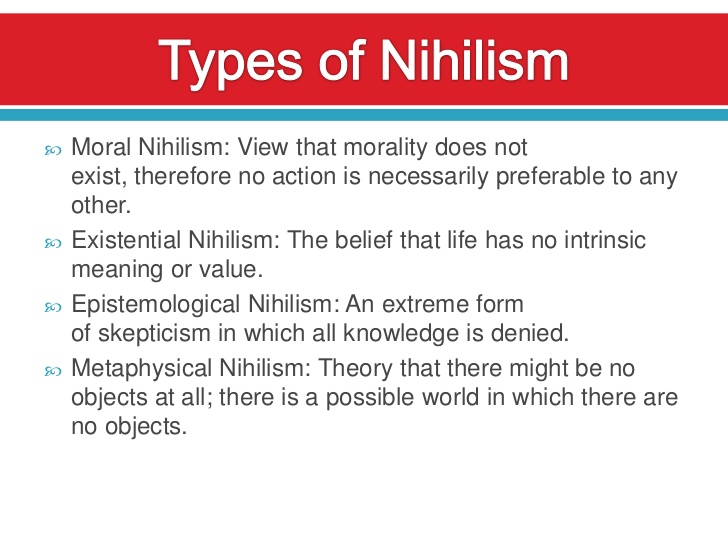Nihilism is a philosophical concept that has captured the attention of thinkers, writers, and the general populace alike. Defined as the belief that life is without objective meaning, purpose, or intrinsic value, nihilism challenges conventional perspectives on morality, existence, and the universe. This article aims to provide an in-depth exploration of nihilism, its origins, key figures, and the implications it has on modern thought and society.
In this comprehensive guide, we will delve into the various dimensions of nihilism, including its historical roots, the different types of nihilism, and its influence on art, literature, and culture. We will also discuss the misconceptions surrounding nihilism and how it is often conflated with apathy or despair. Understanding nihilism is crucial for anyone looking to grasp the complexities of human thought and the philosophical debates that shape our world today.
As we navigate through the intricacies of nihilism, this article will provide valuable insights and references to authoritative sources, ensuring that readers can engage with the content confidently. By the end of this article, you will have a clearer understanding of nihilism, its implications, and how it relates to contemporary issues.
Table of Contents
- What is Nihilism?
- History of Nihilism
- Types of Nihilism
- Nihilism in Culture
- Misconceptions about Nihilism
- Key Figures in Nihilism
- Nihilism and Modern Thought
- Conclusion
What is Nihilism?
Nihilism is fundamentally the rejection of all religious and moral principles, often in the belief that life is meaningless. It encompasses a spectrum of ideas, including existential nihilism, moral nihilism, and epistemological nihilism, each focusing on different aspects of existence and knowledge.
Existential Nihilism
Existential nihilism posits that life has no inherent meaning or value. This perspective can lead individuals to question their purpose and the significance of their actions.
Moral Nihilism
Moral nihilism argues that there are no objective moral values, suggesting that concepts of right and wrong are human constructs rather than universal truths.
Epistemological Nihilism
Epistemological nihilism challenges the possibility of knowledge itself, questioning whether we can truly know anything about the world.
History of Nihilism
The term "nihilism" originated in the 19th century, primarily associated with the Russian author Ivan Turgenev in his novel "Fathers and Sons." However, the roots of nihilistic thought can be traced back to earlier philosophical traditions, such as those of Friedrich Nietzsche and David Hume.
The 19th Century
During the 19th century, nihilism emerged as a reaction to the decline of religious authority and traditional values in Europe. This period saw the rise of existentialism and a renewed focus on individual experience and subjectivity.
Friedrich Nietzsche
Nietzsche is often considered the father of nihilism, famously declaring that "God is dead." His works explored the implications of a world without inherent meaning and the potential for individuals to create their own values.
Types of Nihilism
Nihilism can be categorized into several distinct types, each addressing different facets of human experience and belief systems.
- Existential Nihilism: Focuses on the absence of meaning in life.
- Moral Nihilism: Rejects objective moral values.
- Political Nihilism: Advocates for the destruction of existing social and political structures.
- Cosmic Nihilism: Suggests that the universe is indifferent to human existence.
Nihilism in Culture
Nihilism has significantly influenced various cultural domains, including literature, art, and film. Many artists and writers have grappled with nihilistic themes, reflecting the struggle to find meaning in an increasingly complex world.
Nihilism in Literature
Many literary works explore nihilistic themes, challenging readers to confront the absurdity of existence. Notable authors include Franz Kafka, Samuel Beckett, and Albert Camus.
Nihilism in Film
Films such as "Fight Club" and "The Big Lebowski" illustrate nihilistic themes, presenting characters who question societal norms and the search for personal identity.
Misconceptions about Nihilism
Despite its philosophical significance, nihilism is often misunderstood. Many equate nihilism with apathy, despair, or a lack of values. However, nihilism can also be seen as a call for personal freedom and the opportunity to create one's own meaning.
Key Figures in Nihilism
Several influential thinkers have contributed to the development of nihilistic philosophy, each offering unique perspectives on its implications.
- Friedrich Nietzsche: Explored the consequences of a godless world.
- Jean-Paul Sartre: Emphasized individual freedom and responsibility.
- Albert Camus: Addressed the absurdity of human existence.
Nihilism and Modern Thought
In contemporary society, nihilism continues to influence philosophical and cultural discourse. The rise of postmodernism, skepticism towards grand narratives, and the search for authenticity in a fragmented world can all be traced back to nihilistic thought.
Conclusion
Nihilism remains a complex and often contentious topic within philosophy. By understanding its definitions, history, and implications, individuals can engage more thoughtfully with the challenges it presents. We invite you to share your thoughts on nihilism in the comments below and explore other related articles on our site.
As you continue your journey into the world of philosophy, remember that the exploration of meaning is a personal and ongoing process. We encourage you to return for more insightful discussions and resources.
Does Lil Wayne Have Cancer? Understanding His Health And Recent Concerns
All About Affleck Tattoo: A Deep Dive Into Ben Affleck's Ink
Chloe Bailey's Husband: Everything You Need To Know


